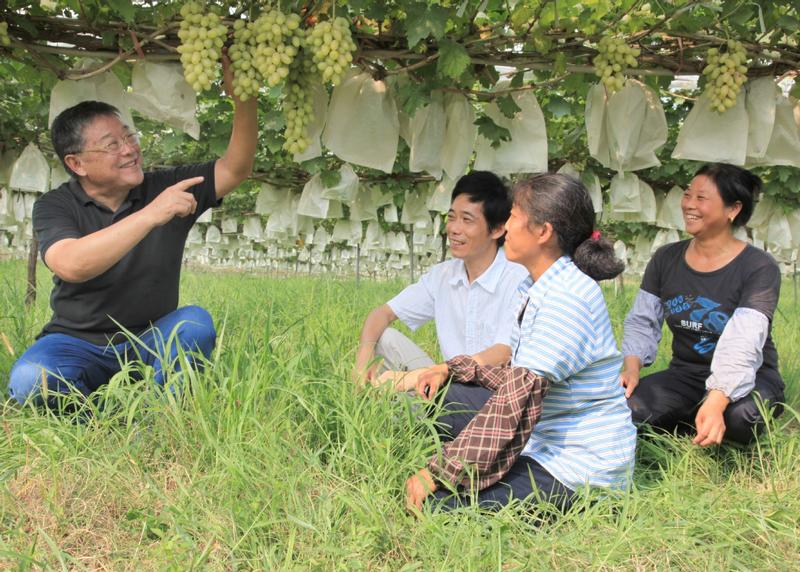 This undated photo captures agricultural researcher Zhao Yafu teaching farmers grape cultivation in Zhenjiang, Jiangsu province. (PHOTO PROVIDED TO CHINA DAILY)
This undated photo captures agricultural researcher Zhao Yafu teaching farmers grape cultivation in Zhenjiang, Jiangsu province. (PHOTO PROVIDED TO CHINA DAILY)
Channels for increasing farmers' income were further expanded last year, and no risk of large-scale return to poverty was found, said Hou Kai, head of the National Audit Office, while delivering an audit report on Monday.
Ninety-nine percent of the families that have been relocated amid poverty-alleviation programs have at least one person employed, according to the report, which was delivered to the Standing Committee of the National People's Congress, the country's top legislature, for review.
An audit conducted last year also found that 77 % of the families families that have been relocated amid poverty-alleviation programs had received financial or policy support in finding jobs or starting their businesses
The audit conducted last year also found that 77 percent of the relocated families had received financial or policy support in finding jobs or starting their businesses. The auditors inspected the implementation of policies for rural vitalization and the use of funds in 137 counties of 28 provincial regions.
ALSO READ: Financial services provide safety net to secure livelihoods of farmers
Hou said follow-up support for relocation areas still needs to be improved, since the audit found that there was still weakness in employment, industrial development and support facilities.
"In 43 counties, job skills training for relocated families was found to be out of step with the market, and some training programs were just for filling out the numbers," he said.
More efforts are needed to improve the rural living environment, including the quality of toilets and sewage and garbage disposal, Hou added.
READ MORE: Authorities vow better services for resettled farmers
The audit report also showed that the proactive fiscal policy and prudent monetary policy achieved significant results last year, reducing the burden on market entities by more than 2.6 trillion yuan (US$406 billion).
Wang Yongjun, a professor at the Central University of Finance and Economics, said in an interview with China Central Television that the country adopted large-scale tax and fee cuts and a series of financial stimulus measures last year, which helped the economy recover remarkably from the impact of COVID-19.
Fiscal management should be further strengthened, including the establishment and application of an expenditure standard system and integration of budget management and performance management.



